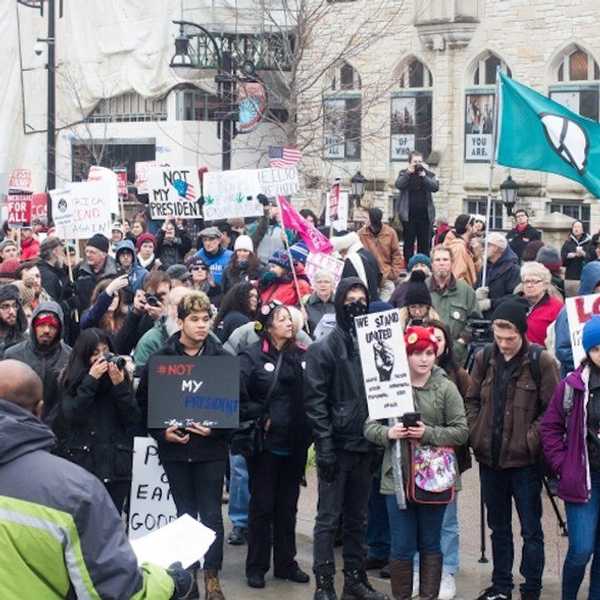In 2011, the Arab Spring swept through the Middle East with the prospect of change. But in Syria, that movement turned into a bloody civil war with chaos and destruction.
The purpose of the Arab Spring was to bring democracy, freedom and a better life for people. As it revolutionizes the Middle East, power changes hands in Tunisia, Libya and Egypt. Demonstrations also took place in Morocco, Bahrain, Algeria, Iran and Sudan to name a few. Leaders in some of those Arab countries subdue their population with promises of democracy; others use brute force to contain the unrest.
As the Arab Spring galvanized an entire region that was for centuries accustomed to dictatorship, kingship and a perennial form of dictatorial government, it also brought both the global collapse of a political tendency of governance and a system that introduced the volatile nature of governing altogether. Syria is a prime example.
The Arab Spring arrived in Syria, and protests began on January 26, 2011. The demands of the Syrian people were political reforms, a reinstatement of civil rights and an end to the state of emergency, which had been in place since 1963. As the government remained unresponsive to the protesters' demands, the protests grew and expanded to Homs, Damascus and to most parts of Syria.
In May 2011, the Syrian military tried to crack down the protests with a violent force. Unsuccessful, President Bashar Al-Assad invited his people to a national dialogue and made some empty promises along the way. Immediately, a National Council was established to lead the Syrian revolt.
At this point, what was an uprising turned into a civil war. As Reuters reported claims of thousands of civilian deaths caused by the rebels and the Syrian military, President Barack Obama and British Prime Minister David Cameron falsely blamed Assad for using chemical weapons on his own people. Lawlessness was raging in Syria.
Besides Syrian rebels, ISIS now entered Syrian territory; foreign fighters joined in the battlefield. Using social media, ISIS took no time to recruit followers locally and internationally. They, then, established a Caliphate system of government in lands they occupy. Notoriously, ISIS fighters are killers on the rampage in Syria.
What escalated the Syrian civil war was the intervention of major foreign forces such as Russia, the United States and some of its western allies, and not to underestimate the presence of Iran, Hezbollah and others. Western forces are in Syria fighting mainly for regime change while Russia, Iran and Hezbollah are in the battlefield to ensure the survival of President Bashar Al Assad's government.
It's an endless war because of the discord among all the parties involved and the personal agenda they all want to achieve. Also with neighboring countries, Israel and Saudi Arabia, anxiously looking on as their proxies are waging war against Assad, Syria would have fallen to balkanization long ago had not it been for the staunch Russian military involvement that tilts the balance of power.
Casualties mount daily in Syria. Syrian Observatory for Human Rights reported that between March 2011 and March 2017, 321,358 to 451,358 have died in the Syrian civil war. Also, more than four million refugees have left the country during the course of the civil war. Most of them fled to neighboring countries such as Turkey, Lebanon, Jordan and Iraq, as well as European nations.
Before the war, Syria was a calm, stable, culturally rich, and very beautiful place to visit. It is one rare Muslim country where people practiced their religions without any fear of violence. Unlike other Muslim countries, Syria is tolerant of Christians and others. But under both Assad regimes, no one dares to whisper a word against the government. Now Syria finds itself in a political quandary without any end in sight. Worse, it could be the ground that ignites World War III.
After all, it's worth wondering what the future holds for Syria after 6 years of war. Its future is uncertain. The purpose of the Arab Spring was to bring hope and change. Little did Syrian people realize that their hope and dreams are shattered in such an unthinkable fashion. With the foreign intervention of small and big players in the conflict, Syria itself has become a bargaining chip.
A war settlement becomes a remote reality. Too many players, too many demands and too much is at stake. It's all about power, greed and dominance. What has added to Syria's uncertainty is the political future that lies ahead, the risk of post-victory payback by Assad or any victorious party.
The Arab Spring may have awakened the entire Middle East with a taste of democracy in a few countries, but Syria has seen the adverse effects of it. What was meant to be an uprising for change turned into a bloody, brutal and endless civil war. Like Germany, England and France in the Second World War, most of Syria is destroyed.
The ruin of Syria is obvious to the naked eyes. It's time to end the war. Since political greed and power often cause people or powerful countries to usurp the sovereignty of nations, the longer we wait for reason and justice to supersede evil in Syria, the more catastrophic the situation. The time for peace is now. “I am Syrian, I was made in Syria, I have to live in Syria and die in Syria" President Bashar al-Assad.



















